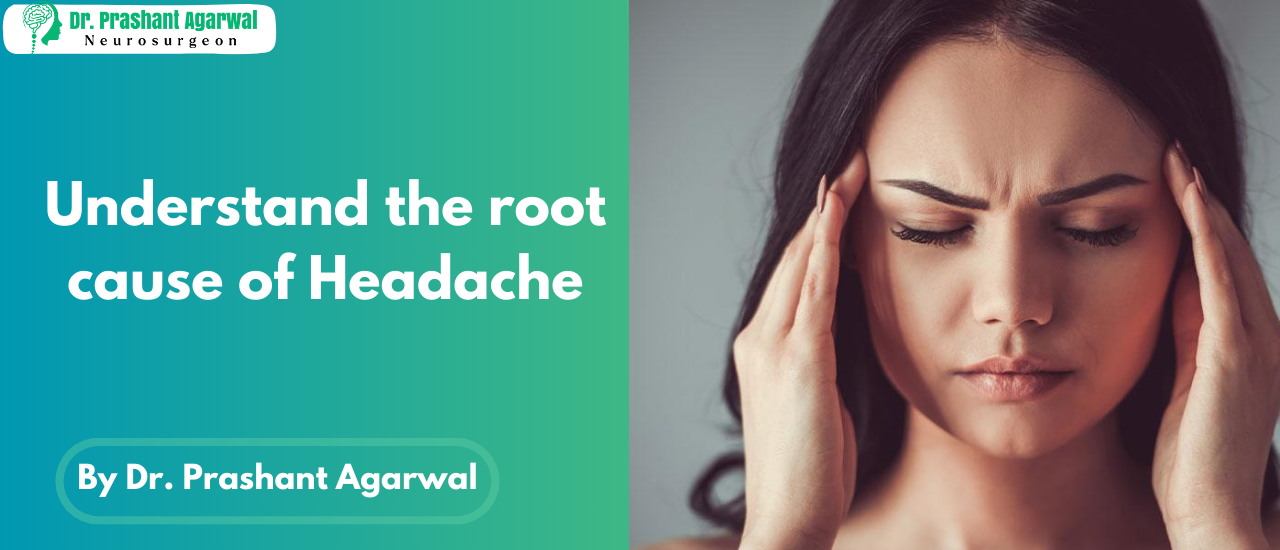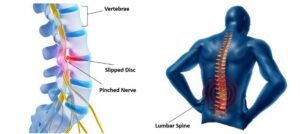Understand the root cause of Headache
Headaches are one of the most common health complaints we encounter. Almost everyone experiences a headache at some point in their life. Despite being so prevalent, headaches are often misunderstood, ignored, or underestimated. As Dr. Prashant Agarwal, I aim to simplify the mystery behind headaches, explain what causes them, and provide practical advice on managing them effectively.
Understand Headaches: More Than Just Pain
A headache isn’t just a pain in your head; it’s your body’s way of signaling that something might be wrong. Sometimes, it’s as simple as dehydration, while other times, it could hint at underlying health issues. Headaches can be broadly classified into two categories:
- Primary Headaches – These are standalone conditions, not caused by any other disease. Examples include migraines, tension headaches, and cluster headaches.
- Secondary Headaches – These occur as a symptom of another condition, such as an infection, injury, or high blood pressure.
Common Causes of Headaches
Let’s dive deeper into what triggers headaches:
- Tension and Stress
Tension-type headaches are the most common. Think of the long hours spent hunched over your laptop, the endless to-do lists, or the worry that keeps you up at night. These daily stressors can cause your neck, scalp, and shoulder muscles to tighten, leading to a dull, pressing headache.
If your headache feels like a tight band squeezing your head, it’s probably a tension headache. The solution? Relaxation techniques, better posture, and regular breaks during work can make a big difference.
- Dehydration
Surprising as it sounds, not drinking enough water can give you a splitting headache. When your body lacks water, your brain temporarily shrinks due to fluid loss, triggering pain sensors. This type of headache is often accompanied by fatigue and dizziness.
The fix is simple: hydrate! Aim for at least 8 glasses of water a day, and even more if you’re active or live in a hot climate.
- Lack of Sleep
A sleepless night doesn’t just make you groggy—it can also leave you with a throbbing headache. Sleep deprivation lowers your pain threshold, making you more sensitive to pain. It also disrupts your body’s natural repair processes, contributing to headaches.
Establishing a regular sleep routine, avoiding screens before bed, and creating a calming bedtime environment can help you sleep better—and prevent those headaches.
- Hormonal Changes
Ladies, if you’ve ever noticed a headache creeping up before or during your menstrual cycle, you’re not alone. Hormonal fluctuations, especially changes in estrogen levels, can trigger migraines. This is why many women experience “menstrual migraines.”
Pregnancy, menopause, and even hormonal medications like birth control pills can also play a role. If hormonal headaches are a recurring issue, consulting a specialist can help you explore treatment options.
- Poor Diet Choices
Certain foods and drinks are notorious headache culprits. Processed foods, aged cheeses, artificial sweeteners, and foods containing monosodium glutamate (MSG) are common triggers.
Skipping meals or fasting can also lead to headaches due to a drop in blood sugar levels. Caffeine, while helpful for some headaches, can cause rebound headaches if consumed in excess or suddenly withdrawn.
A balanced diet, mindful eating, and identifying personal food triggers can help keep diet-related headaches at bay.
- Environmental Factors
Your surroundings can have a bigger impact on your head than you might think. Bright lights, loud noises, strong smells, or changes in weather can all trigger headaches.
For instance, a drop in barometric pressure before a storm is a common migraine trigger. If you notice patterns, try to avoid these environmental triggers or prepare for them when possible.
- Physical Strain
Ever heard of an “exercise-induced headache”? Strenuous physical activity, including intense workouts, can cause headaches. These headaches are often throbbing and occur on both sides of the head.
They’re more common in hot weather or at high altitudes. While staying active is important, pacing yourself and staying hydrated during exercise can prevent these headaches.
- Medical Conditions
Secondary headaches can result from underlying health issues, such as:
- Sinusitis: Infections or inflammation in the sinuses can cause pressure and pain in the forehead or around the eyes.
- High Blood Pressure: A persistent headache at the back of your head could be a warning sign of hypertension.
- Eye Strain: Spending long hours in front of a screen without proper breaks can strain your eyes, leading to headaches.
- Infections: Viral infections like the flu or more serious conditions like meningitis can also cause headaches.
If your headache is severe, sudden, or accompanied by other symptoms like confusion, vision changes, or fever, seek medical attention immediately.
When to See a Doctor
Most headaches are harmless and can be managed with lifestyle changes or over-the-counter pain relief. However, you should consult a doctor if:
- The headache is sudden and intense, often described as “the worst headache of your life.”
- You experience headaches frequently, or they interfere with your daily life.
- It’s accompanied by symptoms like vomiting, fainting, weakness, or numbness.
- You notice a change in the pattern, severity, or location of your headaches.
Managing and Preventing Headaches
Here are some practical tips to reduce the frequency and severity of headaches:
- Maintain a Headache Diary: Track your headaches, triggers, and what helps relieve them. This can provide valuable insights for both you and your doctor.
- Stay Active: Regular exercise can reduce stress and improve circulation, helping to prevent headaches.
- Practice Mindfulness: Yoga, meditation, and deep-breathing exercises can help manage stress-induced headaches.
- Follow a Balanced Diet: Eat small, frequent meals to maintain stable blood sugar levels.
- Create a Sleep Routine: Aim for 7-9 hours of quality sleep each night.
- Limit Screen Time: Take breaks and use proper lighting to avoid eye strain.
Conclusion
Headaches, while common, are not something to be ignored. They’re your body’s way of telling you that something might need attention—be it stress, hydration, or an underlying health condition.
As Dr. Prashant Agarwal, I encourage you to listen to your body, understand your triggers, and take proactive steps to manage your headaches. If you’re ever in doubt or struggling with persistent headaches, don’t hesitate to seek medical advice. After all, your health deserves the best care!





